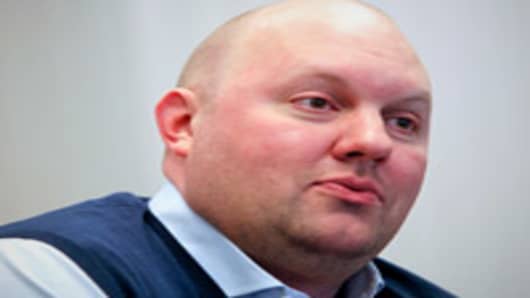NEW YORK — Tech guru Marc Andreessen says he's bullish on the U.S. economy.
"I'm quite bullish," he told CNBC's Julia Boorstin on Tuesday before appearing at the Wired Business conference. "We're coming up on year 15 of a flat stock market. Historically that's a pretty good sign. So I'm not a hedge-fund manager but if I was I think I'd be feeling pretty good."
At the conference in New York, Andreessen, founder and general partner of Andreessen Horowitz, said he didn't think the tech sector was in a bubble.
"I don't think objectively we are in a tech bubble when tech stocks are at a 30 year low," he said.




